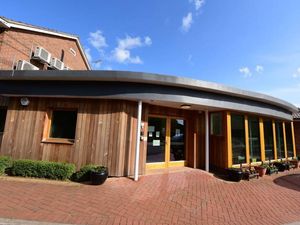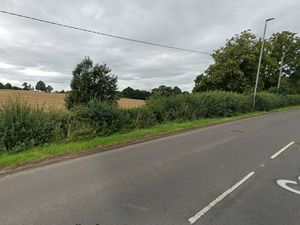Farmer signs up to flooding fight bid
A Staffordshire farmer has become one of the first landowners to sign up to a pioneering project to cut flooding across the county.
A Staffordshire farmer has become one of the first landowners to sign up to a pioneering project to cut flooding across the county.
Charlie Follwell, of Church House Farm, Chapel Chorlton, near Swynnerton, will welcome diggers over the next few weeks to re-profile his land to improve drainage and increase its capacity to store water.
The work is being carried out under the Farming Floodplains for the Future project, which is funded by DEFRA and supported by Staffordshire Wildlife Trust.
The trust says the aim of the projects is to persuade landowners to adopt more traditional land management techniques.
These include restoring rivers and planting trees and shrubs. It also involves introducing features such as ponds, channels and ditches, allowing land to hold more water and drain more slowly.
The work being carried out at Church House Farm will reduce water flow into the River Sow by an estimated 15 million litres.
Reverting to traditional drainage techniques also carries benefits for wildlife by creating habitats for wetland plants and birds such as snipe and lapwing.
Staffordshire Wildlife Trust's wetlands officer Matt Jones explained: "Flooding is a natural phenomenon, which historically farmers used to generate networks of lush water meadows to feed their animals and provide fodder over the winter months. But now, these techniques have almost completely disappeared – and today's farmers have been encouraged to drain their land, with rivers being deepened to help take water away faster.
"The result of this is that large amounts of water enter our rivers very quickly, increasing flooding problems downstream.
"Less damage is caused by water if we deal with it much closer to where it falls rather than letting it accumulate."
Mr Jones has been targeting landowners in the areas where flood reduction methods would be most effective – up and down the length of the rivers Sow and Penk – which includes Church Eaton and Eccleshall. So far, he has visited more than 30 farms and around 10 have signed up to the project. The trust says farmers also benefit from signing up to the project. It says that work at Church House Farm will alter drainage patterns across a wider area, creating better conditions for crops, and there are also financial incentives available to landowners joining the scheme.
Matt added: "The work we're doing on this project in Staffordshire will help to inform the way forward for modern flood risk management, and to steer future policy." If the project is a success, the trust says the use of farmland to manage flood risk could be rolled out across the country, with Staffordshire being used as a national model. Matt has also been targeting landowners in the Newcastle area in North Staffordshire and Coven in the south of the county. Work on the new flood defences will start at at Church House Farm, Chapel Chorlton, today.





